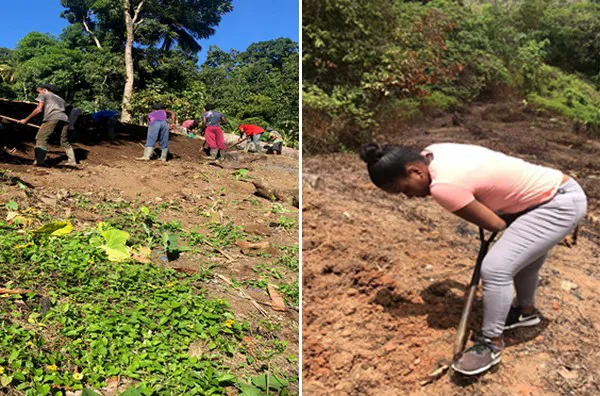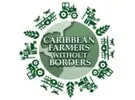“Tourism is very important to you. But we also need to focus on food.”
This was the message that was sent to Caribbean Island governments in 2019 as a new group in agriculture began to form. “We were looking for another source of income for the Caribbean and we thought farming would be the best approach,” says Joseph E. Doway of Caribbean Farmers Without Borders.
And so, with just 36 members to start, Caribbean Farmers Without Borders was born, an organization made up of small and medium growers and processors in islands such as the Bahamas, Guyana, Barbados, the Dominican Republic and many more. Today, it has 145 members--a number it hopes to increase to 2,700 by the end of 2022--all with the goal of, primarily, finding new markets and export opportunities for the crops of the Caribbean.
Teaching growers
Part of finding new markets starts with training members how to access them. “We heard feedback from one U.K. buyer that we’re very good at production, but our farmers didn’t always know how to do business,” says Doway, who is currently working on a training program for growers to improve their skills in that area. “We are working with our growers to sell their food locally, regionally and internationally. But we need to help them navigate that, especially working with other countries and buyers.”

In turn, finding new buyers could help boost overall production in the Caribbean. “They are producing but their yields aren’t always going somewhere. A lot of our farmers for example maybe have 10 acres but they’re only cultivating two acres because they don’t have a buyer,” says Doway. He notes that growers within the organization have a range in acreage--from one acre to 300 acres.
And on that acreage, they’re growing a variety of crops including vegetables, bananas, mangoes, pineapples and more. “Every island has their commodities. Antigua has mangoes. St. Lucia is bananas,” he says, adding that also being grown are root crops including the sweet potato, citrus including limes, lemons, oranges and grapefruits and more. “We’re now looking at raspberries because we’ve found them in the Dominican and are looking to develop that market,” says Doway.
Regional trade barriers
New markets also include more regional opportunities and with that, comes logistics issues. “We have challenges exporting products within the region. We don’t have the boats to take product from one island to another,” Doway says. “If you’re in Antigua and I sold you mangoes, those would go from St. Lucia to Florida where it gets consolidated and then to Antigua. There’s no direct link so we’re looking at that as well.”
And with the hope of bringing together agriculture and tourism, Caribbean Farmers Without Borders is also lobbying governments to pass a bill for resorts in the Caribbean to participate in an “Adopt a Farm” program. The initiative is geared to resort owners and corporations in Caribbean countries. “That way farmers will always have support and always have somewhere to sell their product to,” says Doway.
Then there’s processing, of which very little is currently being done in the Caribbean. “We’d like to look more at agro processing. If you drive through mango season here, you can see the amount of mango that’s being wasted,” says Doway. “We’re saying to the government to look at producing juices, pulps, things that would be able to be made out of the fruits we have and more.”
 For more information:
For more information:
Joseph E. Doway
Caribbean Farmers Without Borders
caribbeanfarmerswithoutborders@gmail.com
